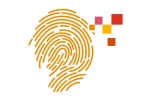
A strategic approach to resilience: Thriving in a time of constant disruption
Businesses today face a rapidly changing world. Challenges have become ever more prevalent. Disruptions from cybercrime, supply chain challenges and climate crises have emerged as unpredictable challenges.
In such an environment, business leaders need to anticipate and respond to disruption proactively – not only to survive, but to thrive.
The key to success is resilience: the ability to navigate through crises, and the capacity to adapt and succeed in the face of constant disruption. PwC’s Global Crisis and Resilience Survey 2023 delves into how organisations are directing their resources, efforts, and investments toward building resilience.

The data: Overview
Data from our global respondents demonstrates confidence and positivity. Business leaders have recognised that true resilience is an important competitive advantage.


Three takeaways
Integration: An integrated resilience programme is essential
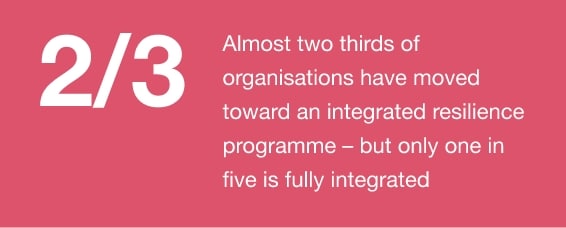
It is no longer sufficient for organisations to be in silos as they address today’s complex and interconnected risks. Enterprises are actively moving to an integrated approach to resilience, centrally governing and aligning multiple resilience capabilities around what matters most to the business, and embedding the programme into operations and the corporate culture.
Leadership in permacrises: the demand for executive leaders and upskilled teams
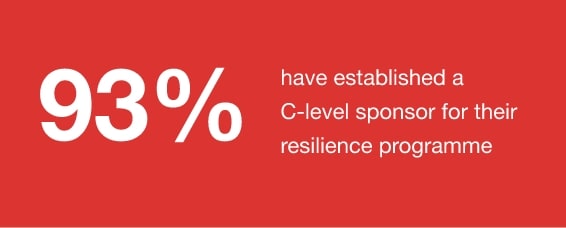
A successful resilience strategy and programme needs:
- Executive sponsorship from the C-suite
- A senior leader with clear responsibility for the programme
- A skilled team to drive the programme across the organisation
31% of our respondents said building a team with the right skills is a major challenge in establishing a resilience programme. 57% of organisations cite upskilling future leaders as one of their three most important elements of future-proofing resilience.
Programme approach: Build operational resilience around the aspects that matter most
Organisations must build operational resilience and ensure that enterprise planning and preparation are part of a broader continuous cycle. As more organisations integrate their resilience programmes, many are adopting the core principles of an operational resilience (OpRes) approach, prioritising investment based on what’s critical to their organisation and stakeholders. This allows organisations to manage risks with high reliability and to drive efficiency.
Those who have moved to an integrated resilience programme are significantly further ahead in many of the core elements of OpRes.
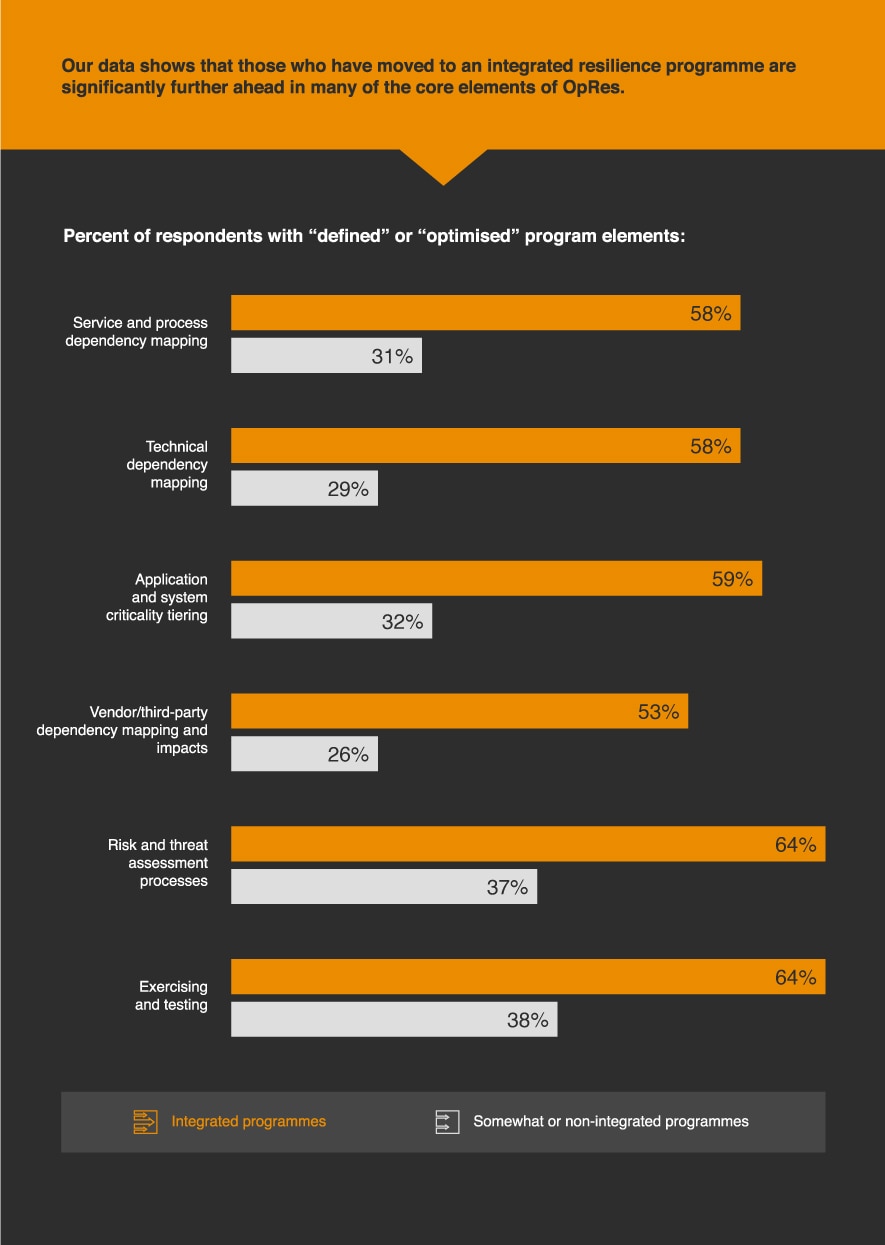

Technology-powered resilience
Distributed data, systems, processes, and operational silos mean organisations struggle to obtain a view of their resilience, only identifying gaps when disruption hits.
The traditional approach to managing resilience is no longer succeeding. Too many organisations are missing out on opportunities to identify and rectify vulnerabilities before an incident occurs. It’s time for a new approach.
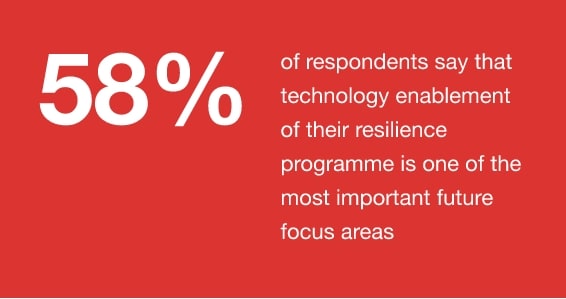
Business leaders understand the need for resilience strategies to be underpinned by technology that can intelligently aggregate data. Business leaders are also looking to use technology to create a living resilience programme they can continually test and evolve.

Where are businesses investing?
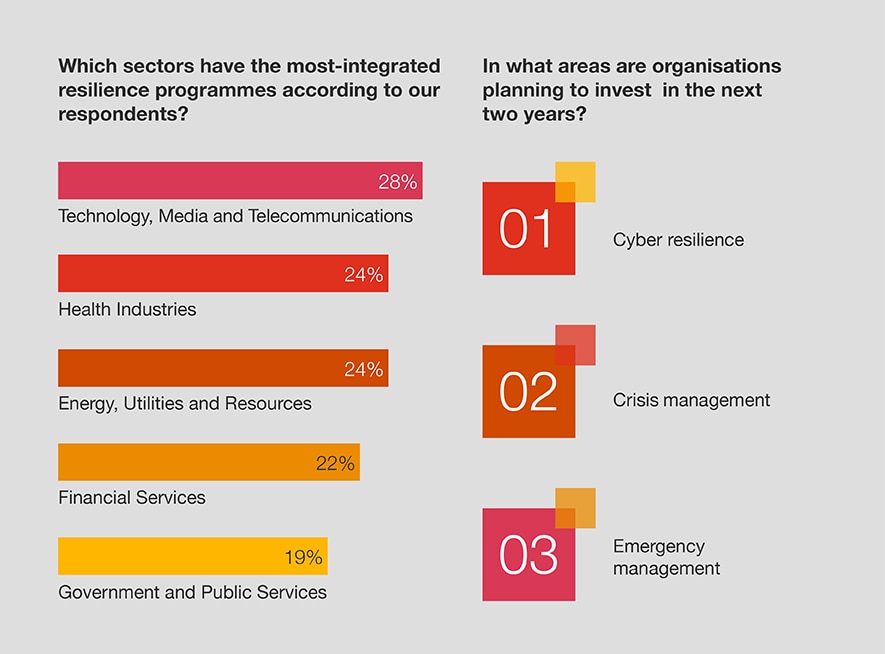
Despite market conditions, organisations aren’t reducing their investment in resilience – further testament to business leaders’ recognition that it is critically important.
Businesses making the greatest overall investment in resilience are characterised by key traits that deliver results over the long term. For starters, they invest strategically rather than motivated by compliance needs or fear.
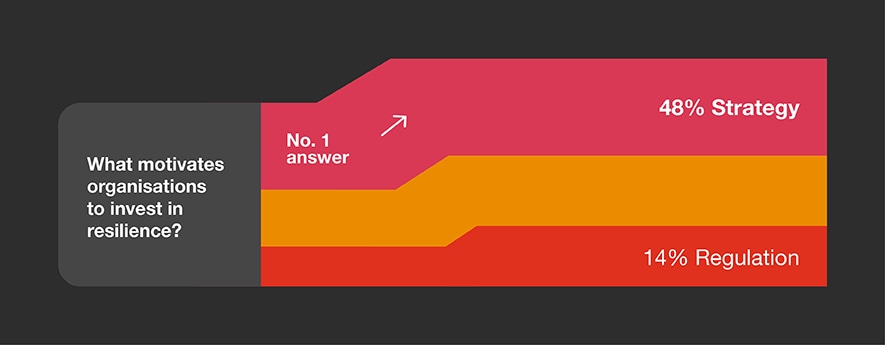

Join the resilience revolution: Thrive in permacrisis
Establish sponsorship and senior level support for your resilience programme
Identify a visible senior leader responsible and accountable for the programme
Identify your critical business services and consider them in your resilience strategy
Identify your critical business services, map their dependencies, and integrate your resilience capabilities around those services
Cross-functional teams help you build an integrated enterprise resilience programme
Align your programme with your strategy, your values, and the investment priorities across your organisation
Regard your unique risk landscape from a different angle.
Go beyond traditional risk management and leverage technology to highlight weak signals and other key indicators for resilience; organisations most able to mitigate, withstand and recover stronger from a crisis all have a panoramic view of their risk landscape, allowing them to better anticipate risk and act with confidence
Reinforce resilience strategies with technology and regular testing and exercises
Data, technology and actionable intelligence help you anticipate, prevent, and prepare. Learn from risks and disruption; assess your capabilities regularly for relevance, alignment and preparation
Between September and November 2022, organisations representing 42 countries across all industries shared their observations. PwC’s Global Crisis and Resilience Survey 2023 is the third PwC study analysing corporate crisis and resilience data.
Contact us



